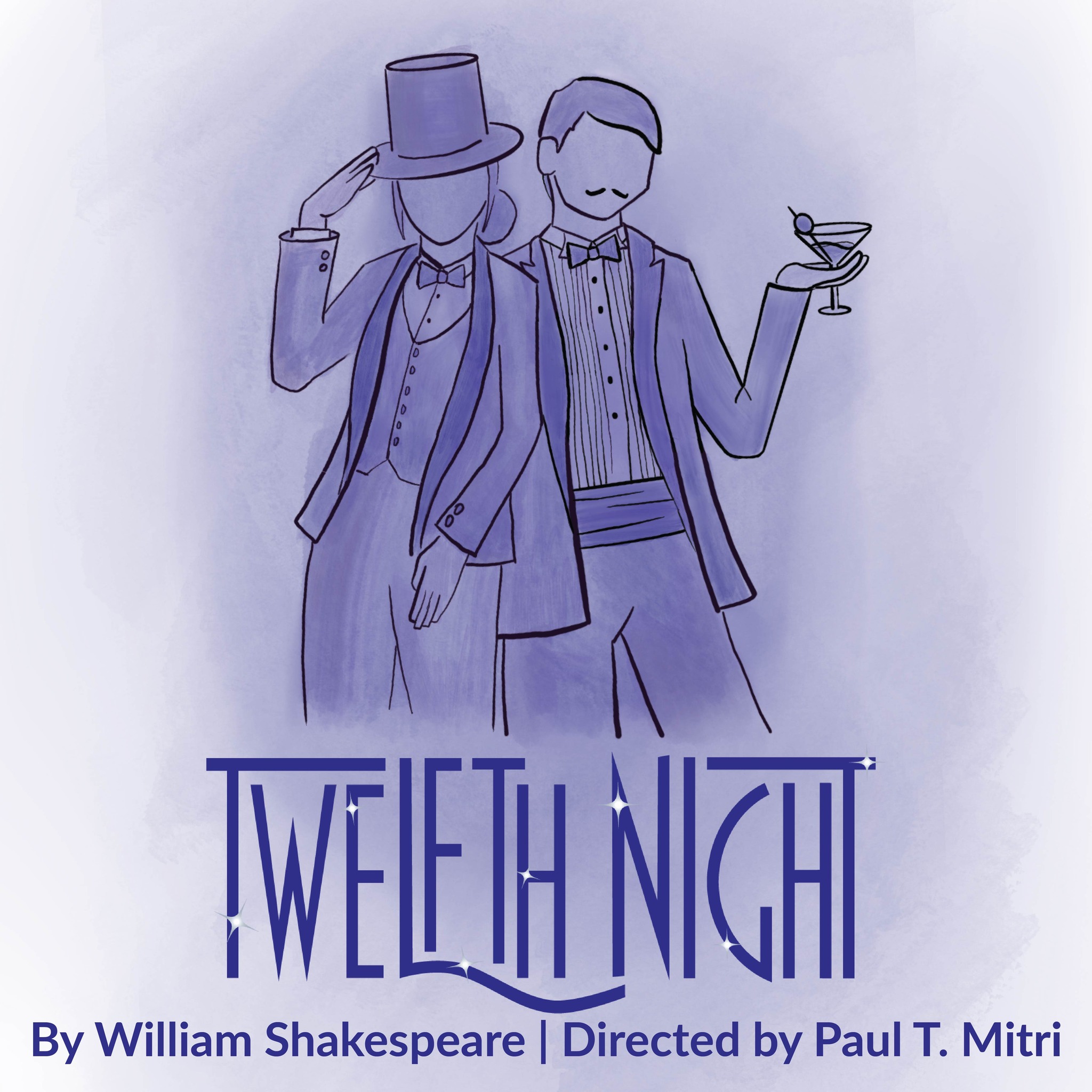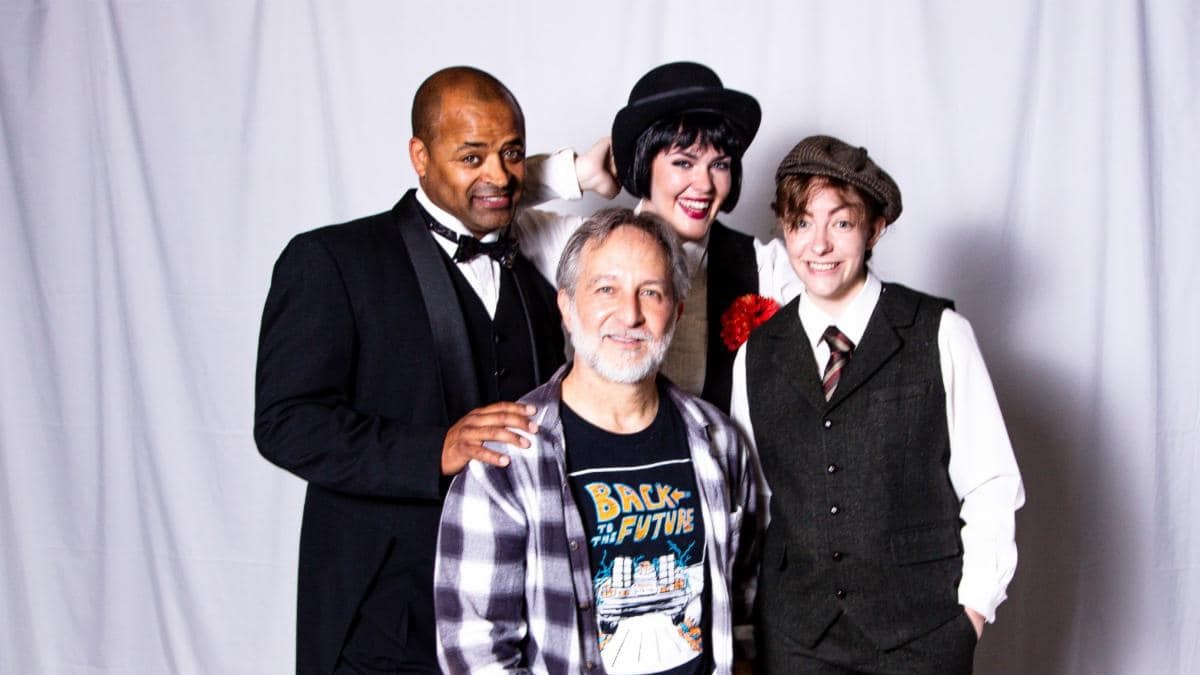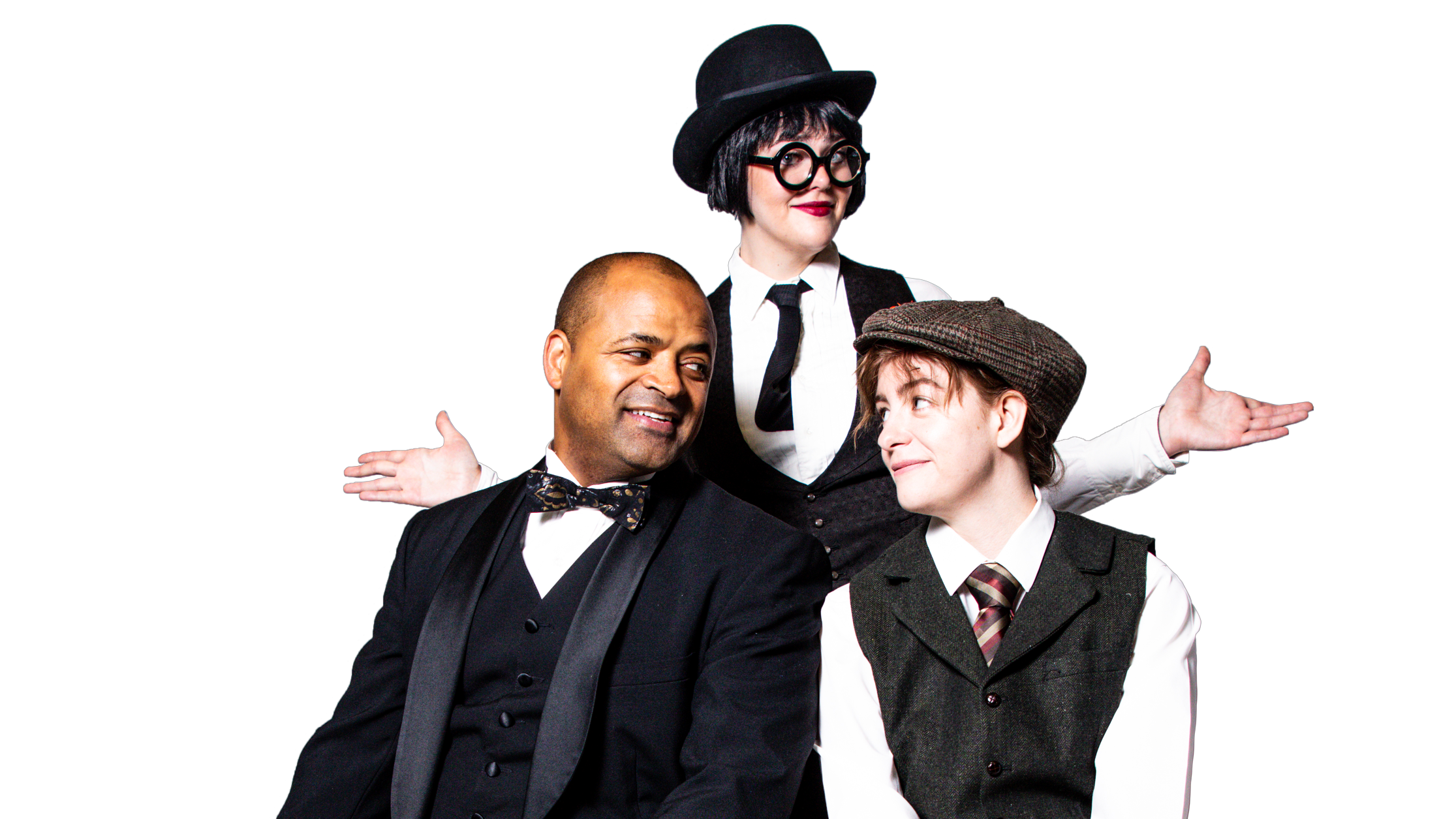LOGAN — The mystical land of Illyria comes to life as a Roaring 20’s night club at the Lyric Repertory Company’s production of one of Shakespeare’s most beloved comedies, Twelfth Night. Shimmering mirror walls dripping with art deco opulence set the Morgan Theatre’s stage as Duke Orsino declares “If music be the food of love, play on.” Music is, indeed, the food of love and laughter throughout the performance as director Paul Mitri’s strong concept of mashing Shakespeare with some of the best elements from big band era musical theatre offers a feast for the eyes and ears and make for an excellent night.

The play is fully set from the top of act one with an excellent dance choreographed by Mike Romney. Set to “Blue Danube Waltz” by Strauss, the main themes of the show are portrayed quickly through dance. The love triangle and subplots are all referenced in one dance number and demonstrates to the audience the stories they will enjoy during the show.
The love triangle starts with Viola, played by Liza Shoell, who is shipwrecked on the shores of Illyria after a storm. Viola is strong as she finds herself alone in a foreign land and decides to disguise herself by dressing as a man named Cesario to protect herself as she enters the employ of Duke Orsino (Herb Newsome). Liza Shoell uses a very wide range in her vocals, even making a pubescent voice crack when she is playing Cesario and I enjoyed the quirkiness it added. The relationship between Shoell’s Viola/Cesario and the Duke grows naturally with looks and small touches from both actors. Newsome’s Duke leans into those looks and touches, but visibly shutters to share those moments with his page as he tells Cesario how he is smitten with Olivia and begs Viola/Cesario to woo her for him.

Bailee Miner is delightful as Olivia. She expertly shows who she desires and who she has no interest in by every look on her expressive face. Olivia’s dancing was unique and enjoyable as she peacocks across the stage and even tiger crawls in order to seduce the Duke’s page, Cesario, who has absolutely no interest and fends her off.
While the love triangle is the main plot, the most stand out performance of the night was given by Michael Doherty as Malvolio. Doherty was fully committed to every gag and was hysterical to watch. He starts the play as a pompous blowhard who followed around Olivia and worships her. Then he completely loses his cool on her kinsmen when they stay up too late drinking and partying, prompting them to play a horrible prank on him. Doherty is just the right amount of over-the-top and absurd as he arcs Malvolio from haughty butler to raving lunatic. When Malvolio is shown chained up in the basement with magenta gel lighting while Bach’s “Toccata and Fugue in D Minor” plays is the epitome of perfect lighting and sound design enhancing Doherty’s farcical expressions and got some of the biggest laughs of the night.
The prank on Malvolio is pulled off by the trio of Sir Toby Belch (Jack Carter Roberts), Sir Andrew Aguecheek (Brandon Foxworth), and Maria (Kaia Fitzgerald). Each actor gives a commendable performance as the scene where they get a forged letter to Malvolio crescendos into wackiness that includes miming a reflection and hiding by pretending to be furniture. Fitzgerald is bright and vivacious as she tangos her way into Sir Toby’s heart with her cunning schemes. Sir Toby and Maria so fully dupe Malvolio they make him think he has powers and force chokes them both when they try to exorcize him. Mitri’s blocking of these farcical scenes, including the sword fight that devolves into a pillow fight, is fun and playful.
Rounding out the story is Viola’s twin brother Sebestian, played by Sumner Jones Shoell. I don’t know if the two actors are twins in real life, but the siblings do share a strong enough resemblance. However, it isn’t just looks that Sumner Shoell brings, his version of Sebastian is confident and focused. Sebestian was rescued from the storm by the captain Antonia (Marin Robison). Shakespeare’s original is written as Antonio, but gender swapped for this production which gives the role a fresh and surprising love interest which Sebastian is fleeing from on his way to being with Olivia. Robison was exceptional delivering Shakespearean verse in a 1920’s Boston film noir-type dialect. She chases Sebastian down during dances and uses her tiny golden pistol to show she had a dark past.
Finally, a standout performance is given by McKenna Walwyn, playing the fool, Feste. With the big band theme of this production, Feste is suddenly singing beautiful musical numbers, using her cane like Charlie Chaplain to get laughs, and doing the “shuffle off to buffalo” during the tap dance number. Walwyn is a true triple threat. Feste claims that, “Foolery, sir, does walk about the orb like the sun, it shines everywhere.” I would certainly agree that Walwyn shines as the fool of the show.
The technical elements of this production are outstanding. I love the set designed by Michelle A. Bisbee with golden art deco lines. It is obviously a 1920’s club, but the whole place stays the same, only an ottoman moves back and forth to change scenes from the Duke’s to Olivia’s home. This simplicity in scene changes kept the pace of the show moving forward quickly and never losing momentum. The costume designs by Maile Speetjens are excellent at setting the era. Malvolio’s costumes are particularly wonderful with his yellow cross garters being portrayed as an era appropriate garish golf uniform.
The concept of a big band era musical works so well because of the strong music direction and compositions from Luke Shepherd in conjunction with sound designer Connor Stevens. I’ve seen many Shakespeare productions which change the setting and have various degrees of success. This is one of the most effective concepts I have seen. The classical, smooth jazz, and original music with Shakespeare’s words all fit organically in the play and tie the production together. Good Shakespeare should be easy to understand for any audience member whether or not they have ever studied the Bard and this production delivers. The show is suitable for all audiences and uses song, dance, and superb acting to let the story shine and show why people have been returning to see this light-hearted comedy for over 420 years.
[box]The Lyric Reparatory Company’s production of Twelfth Night plays various dates at 7:30 PM through July 21, 2023 at the Morgan Theatre on the campus of Utah State University. Tickets are $15-$35. For more information, visit their website: https://www.usu.edu/lyricrep/[/box]

